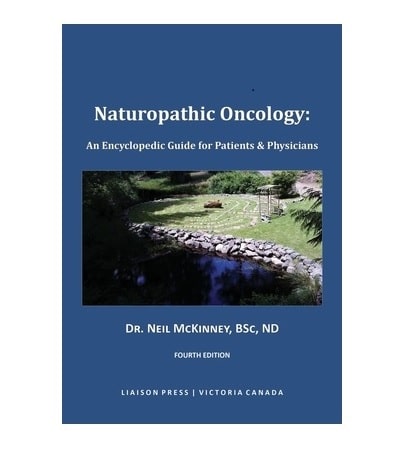Berberine, an active ingredient in several plants, shows good effects in managing high blood sugar and excess body weight, plus lower risk of colorectal cancer.
How do experts use berberine?
Both medical groups and integrative experts provide recommendations for berberine in treating people with cancer. Learn more about the approaches and meanings of recommendations: Integrative Oncology Programs and Expert Guidelines ›
Clinical practice guidelines
In this 2018 review, berberine is listed as shown to lower glycated hemoglobin (HbA1C) by at least 0.5% in randomized controlled trials lasting at least 3 months.
Published protocols, programs, and approaches
These protocolsa package of therapies combining and preferably integrating various therapies and practices into a cohesive design for care, programs, and approaches by leaders in integrative cancer care use or recommend this therapy or practice.
We do not recommend specific integrative protocols or programs but provide information for you to evaluate with your healthcare team.
Keith Block, MD
Block KI. Life over Cancer: The Block Center Program for Integrative Cancer Care. New York: Bantam Dell. 2009.
The integrative Block Program has recommendations to people who are at different places along the cancer continuum:
- Those who’ve been recently diagnosed
- Those in treatment
- Those who’ve concluded treatment and need to remain vigilant to prevent recurrence
Berberine is used for blood sugar (glycemic) support.
Gerald M. Lemole, MD; Pallav K. Mehta, MD; and Dwight L. McKee, MD
Lemole GM, Mehta PK, McKee DL. After Cancer Care: The Definitive Self-Care Guide to Getting and Staying Well for Patients with Cancer. New York, New York: Rodale, Inc. 2015.
These doctors present easy-to-incorporate lifestyle changes to help you “turn on” hundreds of genes that fight cancer, and “turn off” the ones that encourage cancer, while recommending lifestyle approaches to address each type.
Berberine is used for multiple myeloma and renal cancer.
Barbara MacDonald, ND, LAc
MacDonald B. The Breast Cancer Companion—A Complementary Care Manual: Third Edition. Self-published. 2016.
Naturopathic physician Barbara MacDonald provides information about breast cancer, its conventional treatment, and natural approaches to enhancing treatment, managing side effects, reducing risk of recurrence, and healthy living after cancer treatment is completed.
Dr. Barbara MacDonald recommends against taking berberine during taxol treatment; see Safety and precautions ›
Neil McKinney, BSc, ND
McKinney N. Naturopathic Oncology, Fourth Edition. Victoria, BC, Canada: Liaison Press. 2020.
This book includes descriptions and uses of many natural and complementary protocols for cancer in general and for specific cancers. It also includes information on integrative support during conventional cancer treatment.
Anticancer effects:
- Promotes apoptosisprogrammed cell death, a normal process of all cells in our bodies. Cancer cells can evade this process and live longer than normal. Therapies that promote apoptosis get cancer cells to die their normal death
- Promotes autophagyconsumption of the body’s own tissue as a metabolic process occurring in fasting, starvation and certain diseases; cellular self-cleansing
- Induces differentiation
- Antimutagenic
- Stem cell modulation
- Antiviral regarding cancers linked to viruses
- Antimetastatic
Treatment enhancement:
- Synergistic with carmustine (BCNU)
- Increase efficacy of radiation therapy by inhibiting TGFbeta
Managing side effects during radiotherapy:
- Constipation
- Anorexiaabnormal loss of appetite, often leading to weight loss, nausea, and fatigue associated with intestinal and pelvic radiation
- Radiation pneumonitis
- Protection of bowel and bladder from injury during pelvic radiation
- Proctitis
Managing side effects during chemotherapy
- Cardiomyopathy from anthracyclines such as Adriamycin/doxorubicin
- Support mitochondrial recovery
Terrain support:
- Lower insulin
- Modulate hormones
Specific cancer protocols:
- Brain cancer
- Leukemia, except not with stem cell transplant
- Liver and gallbladder cancer
- Multiple myeloma
- Myelodysplastic syndrome
- Ovarian cancer
- Prostate cancer
- Sarcomas
- Stomach cancer
Dr. McKinney recommends against using berberine around the time of stem cell transplant due to its suppression of the immune system.
Gurdev Parmar, ND, FABNO, and Tina Kaczor, ND, FABNO
Parmar G, Kaczor T. Textbook of Naturopathic Oncology: A Desktop Guide of Integrative Cancer Care. 1st edition. Medicatrix Holdings Ltd. 2020.
This book provides information on the treatment of 24 cancers, plus the most effective treatments of the most common symptoms affecting cancer patients while they undergo chemotherapy, radiotherapy, or surgery.
Berberine is used in the lung cancer protocol during radiation to reduce radiation-induced lung injury.
Traditional medicine
Berberine is an active ingredient in many herbal extracts and treatments used commonly in traditional Chinese medicine and Ayurveda.
Learn more about traditional medicine and how to find practitioners: Finding Integrative Oncologists and Other Practitioners ›
Dosing
See these resources for information on dosing:

Block KI. Life over Cancer: The Block Center Program for Integrative Cancer Care. New York: Bantam Dell. 2009.

McKinney N. Naturopathic Oncology, Fourth Edition. Victoria, BC, Canada: Liaison Press. 2020.
General information about dosing
Find general dosing guidelines regarding natural products and supplements in Dosing Guidelines ›
